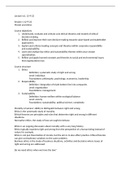Samenvatting
Summary of Lectures and Literature Ethics and the Future of Business - Master Business Administration UvA
Summary of the Lectures and the Literature of Ethics and the Future of Business for the Master Business Administration, general course for all tracks.
[Meer zien]




